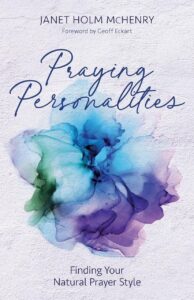 IS THERE A “right’ way to pray? Many of us have heard various prescriptions about how to make our prayer life more meaningful and effective. But when we try it out, it may seem complicated, awkward, or unnatural. Certain prayer approaches seem to work well for some people but not for others. But maybe, just maybe, that’s to be expected. In author Janet Holm McHenry’s new book, Praying Personalities, Finding Your Natural Prayer Style, Janet helps readers identify the more comfortable style of praying that fits their own personality. In our interview, Janet, who is the author of 26 books—six of them on prayer– gives you a glimpse of what you might discover in her new book.
IS THERE A “right’ way to pray? Many of us have heard various prescriptions about how to make our prayer life more meaningful and effective. But when we try it out, it may seem complicated, awkward, or unnatural. Certain prayer approaches seem to work well for some people but not for others. But maybe, just maybe, that’s to be expected. In author Janet Holm McHenry’s new book, Praying Personalities, Finding Your Natural Prayer Style, Janet helps readers identify the more comfortable style of praying that fits their own personality. In our interview, Janet, who is the author of 26 books—six of them on prayer– gives you a glimpse of what you might discover in her new book.
Linda: Janet, I know you’re a woman of prayer and a leader in a number of prayer ministries. Tell us how prayer became a passion of yours.
Janet: Some might say I literally fell into prayer. One day I walked out my back door and found myself in a crumpled heap because my knee had given way. So right there on the concrete I decided to do something about my health—that I would get up a little earlier the next day and walk, and while I walked, I would pray. There was a lot of my-ness in those initial prayers—my kids, my job as a high school English teacher, my marriage—but that all changed one day when I saw what I call a Single Daddy’s Ballet. That early, dark morning I watched as a man parked his pickup truck in front of the daycare center and sweep his little blanketed bundle over into the arms of the daycare worker waiting on the sidewalk. At that moment the little girl said, “Bye, Daddy. I love you!” And I knew right then that God had me out on the streets of my community less for the my-ness of my prayers but more for the needs around me. So I prayed for him and began to pray for whatever God put within my eyesight—my neighbors, the business people in my little town, and even commuters heading off to work in Reno.
Linda: How did prayerwalking grow into a passion and life’s study?
Janet: It was a progression of understanding. First, I began to understand that wherever we are, there’s a need for prayer, so a praying-without-ceasing lifestyle is possible for us. And then a hunger developed in me to learn more about prayer, so I began combing God’s Word for biblical people’s prayers and any teachings on prayer—marking my Bible up with circled Ps. Then when my book PrayerWalk came out, I began speaking about prayer and prayerwalking.
Linda: You’ve also written many other books on prayer, including The Complete Guide to the Prayers of Jesus. But how did the idea come for your newest book, Praying Personalities: Finding Your Natural Prayer Style?
Janet: God laid a thought on my heart starting years ago. Because I was such a crazy advocate about prayerwalking, I encouraged others to pick up the practice when I spoke. But invariably a lovely woman would come to me afterwards and say, “But Janet, I can’t walk. What should I do?” And frankly, I’m not sure my answer was always adequate. Then a couple years ago I was speaking to a group of writers about how to incorporate more prayer into their lives—dozens and dozens of ideas—and I heard myself say, “Perhaps it has something to do with personality.” That was a mic-drop moment for me . . . especially when one of those writers said, “Janet, you should write a book about that.” So I began combing scripture again—looking for various ways biblical people prayed—looking at their language and 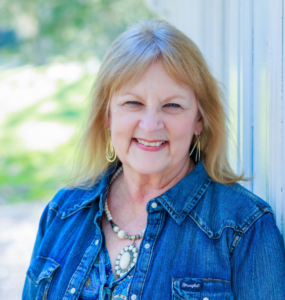 perspective and attitude.
perspective and attitude.
Linda: And what did you discover?
Janet: I found that those biblical folks prayed in many different ways. Moses argued with and complained at God. Job was a thinker and simply wanted to know the WHY? behind his pain. Hannah poured out her grief at not having a child in 1 Samuel 1, then a chapter later we see her beautiful poem of praise. David wrote half of the psalms—many of which were laments. Then we have those who fasted while they prayed—Ezra, Nehemiah, Esther—a very physical accompaniment with prayer. Paul wrote out summaries of his prayers to the various churches throughout the Mediterranean area. Seeing those differences in how people prayed provided the inspiration to consider various praying personalities and how each might pray in a natural way.
Linda: What kind of personalities did you find for prayer . . . and how might all of this give hope and guidance to us in our own prayer lives?
Janet: I identify four different praying personalities—Problem Solver, Friend of God, Organized Pray-er (also called Lamenter), and Peace Seeker. And people can take the Praying Personalities Quiz I created (https://prayingpersonalities.com) to help them learn more about how they can develop a praying lifestyle that blends with their God-given personality. I simply want to help readers shed the guilt about what they think they’re doing or not doing. I used to feel I was a prayer failure! I didn’t have a prayer closet. I didn’t journal my prayers. I couldn’t keep up with an organized prayer notebook or other categorial system. But God led me to a praying style that helps me stay in touch with him all day long—one that has helped me overcome fears, depression, and feelings of inadequacy. And I simply want to share that hope with others too.
Linda: What process did you go through to identify the different praying personalities? Was it only by looking at the way people prayed in the Bible?
Janet: I started with examining how people prayed in the Bible, as well as the spiritual gifts and how they connect with prayer. Then I took a journalistic look at many of the personality theories to find the underlying questions that would determine the various personality types. I don’t advocate for any of those but simply state what they are: the Greek temperaments, Jung’s theories (even Elisabeth Elliott studied Jung), Myers-Briggs, Keirsey, 16 Personalities, Strengths Finder, Big 5, and the Enneagram. I also did studies of the generations to see how they prayed and discuss the learning styles also. It was a fascinating journey! And it may interest readers to know that the creators of these theories may not have created the questionnaires people take to identify their personality.
Linda: Is there any connection between the praying personalities and the personality profiles we’ve heard about in other places – like the sanguine, the choleric, the melancholy, and the phlegmatic?
Janet: Yes, readers will see a connection between the praying personalities and the temperaments. I am a certified LINKED Personalities trainer, so I worked mostly from that framework, which connects with the temperaments.
Linda: Could you give us an example of what these four different praying personalities look like? How would each of them pray differently?
Janet: Here’s a quick look at the Praying Personalities, which readers can discover by taking the Praying Personalities Quiz:
Problem Solver
- Approaches prayer quickly from a problem-solving perspective.
- Keeps prayers purposeful, succinct, and focused.
- Prayer suggestions: go on a prayerwalk, pray while exercising, post reminders, fast.
Friend of God
- Approaches prayer as relational time with God.
- Loves praying with others.
- Prayer suggestions: use worship music, round up the family to pray daily, speak to God out loud.
Organized Pray-er (Lamenter)
- Sees prayer as an emotional, yet disciplined practice.
- Needs to have a quiet place to pray away from the world.
- Prayer suggestions: use a notebook system, keep a journal of prayers, create a prayer spot in your home.
Peace Seeker
- Goes to prayer to restore personal peace.
- Sees prayer time as an informal but steady practice.
- Prayer suggestions: consider using prayer books to jumpstart a quiet time, use prayer apps, develop a simple prayer routine using an acronym such as ACTS (adoration, confession, thanksgiving, supplication)
Linda: Where can readers find out more about you and your ministry?
Janet: They can find me at www.janetmchenry.com and my books here.




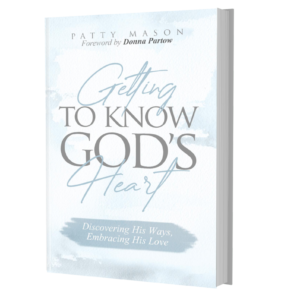

 WHEN SELENA TOLD ME about her divorce, I was crushed. Years before, she had gone through Marriage 911, reconciled with her husband and been an enthusiastic supporter of others going through our ministry. We hadn’t been in touch for quite a while, and when she informed me of the happenings of the previous year, I was in shock.
WHEN SELENA TOLD ME about her divorce, I was crushed. Years before, she had gone through Marriage 911, reconciled with her husband and been an enthusiastic supporter of others going through our ministry. We hadn’t been in touch for quite a while, and when she informed me of the happenings of the previous year, I was in shock.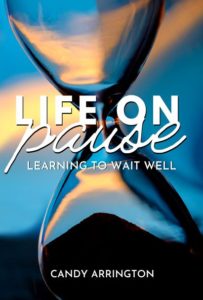
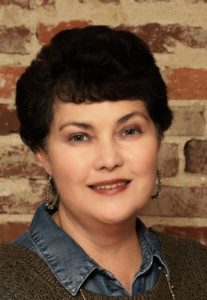


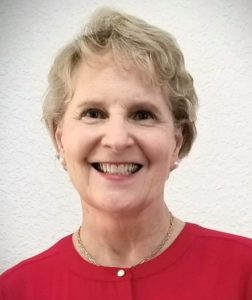 As a freelance writer, Joan Benson has produced devotional materials for CBN.com, written numerous magazine articles (most recently for LifeWay’s ParentLife and Regent University’s The Christian Leader). Her debut historical fiction novel,
As a freelance writer, Joan Benson has produced devotional materials for CBN.com, written numerous magazine articles (most recently for LifeWay’s ParentLife and Regent University’s The Christian Leader). Her debut historical fiction novel,  Dreams can come true – even in the midst of uncontrollable circumstances.
Dreams can come true – even in the midst of uncontrollable circumstances.



